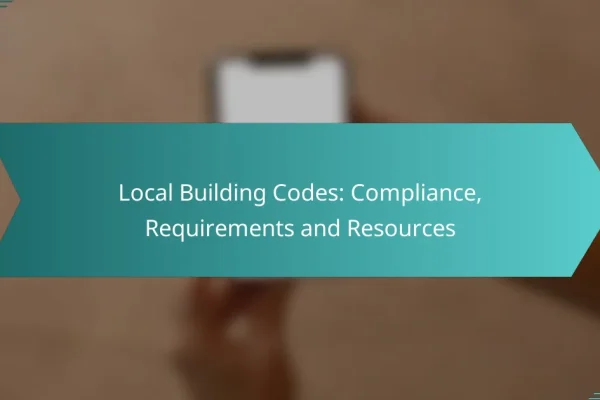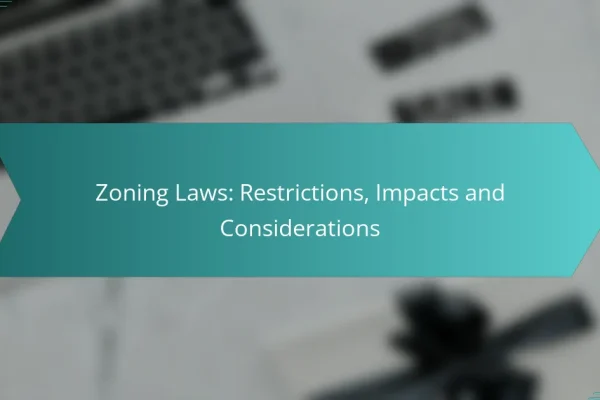What home renovation permits are required in London?
In London, various home renovation permits are necessary to ensure compliance with local regulations. These permits include planning permission, building regulations approval, listed building consent, party wall agreements, and environmental permits.
Planning permission
Planning permission is often required for significant alterations to your home, such as extensions or changes to the building’s use. It ensures that the renovation aligns with local development plans and community standards.
To apply for planning permission, submit detailed plans and documents to your local council. The process can take several weeks to months, so it’s advisable to start early and consult with a planning officer if needed.
Building regulations approval
Building regulations approval is necessary for structural changes, electrical work, and plumbing installations to ensure safety and compliance with health standards. This approval is separate from planning permission and focuses on the technical aspects of the renovation.
To obtain this approval, you must submit plans to your local authority or a private approved inspector. Inspections will occur at various stages of the work to ensure compliance with the regulations.
Listed building consent
If your property is a listed building, you will need listed building consent for any alterations that affect its character. This consent is crucial to preserve historical and architectural significance.
Applying for listed building consent involves submitting detailed proposals to your local council, which will assess the impact of your renovation on the building’s heritage. This process can be lengthy, so plan accordingly.
Party wall agreement
A party wall agreement is required if your renovation affects a shared wall with a neighboring property. This legal document outlines the rights and responsibilities of both parties during the renovation process.
To establish a party wall agreement, notify your neighbor in writing at least two months before starting work. If they agree, you can proceed; if not, you may need to resolve disputes through a surveyor.
Environmental permits
Environmental permits may be necessary for renovations that could impact local ecosystems or involve waste disposal. These permits ensure compliance with environmental regulations and protect natural resources.
Check with your local council to determine if your project requires an environmental permit. If so, you will need to submit an application detailing the potential environmental impact and your plans to mitigate it.
How to apply for home renovation permits in the UK?
To apply for home renovation permits in the UK, you typically need to submit an application to your local planning authority. This process involves providing detailed plans of your proposed work and ensuring compliance with local regulations.
Online application process
The online application process for home renovation permits in the UK is straightforward. Most local councils offer an online portal where you can fill out the necessary forms and submit your plans digitally. This method is often faster and allows for easier tracking of your application status.
To begin, visit your local council’s website and navigate to the planning section. You will need to create an account if you do not already have one. Once registered, you can complete your application and upload any required documents.
Required documentation
When applying for a home renovation permit, you will need to provide specific documentation. This typically includes detailed architectural plans, site plans, and any relevant photographs of your property. You may also need to submit a design and access statement, especially for larger projects.
Ensure that all documents are clear and to scale, as poorly prepared submissions can lead to delays. Check your local council’s website for a comprehensive list of required documents, as these can vary by location.
Application fees
Application fees for home renovation permits in the UK can vary significantly based on the scope of your project. Generally, fees range from a few hundred to over a thousand pounds, depending on the complexity and size of the renovation.
It is advisable to check with your local council for specific fee structures, as some councils may offer reduced fees for smaller projects or community-focused renovations. Be prepared to pay the fee at the time of application submission to avoid processing delays.
What are the common regulations for home renovations?
Common regulations for home renovations include structural safety standards, fire safety regulations, and energy efficiency requirements. These rules ensure that renovations are safe, compliant with local laws, and environmentally responsible.
Structural safety standards
Structural safety standards focus on the integrity of the building during and after renovations. These regulations typically require that any alterations do not compromise the load-bearing capacity of walls, roofs, and foundations.
Before starting a renovation, consult local building codes to determine specific requirements. For example, in the United States, the International Building Code (IBC) provides guidelines that many local jurisdictions adopt.
Fire safety regulations
Fire safety regulations are designed to minimize the risk of fire hazards in renovated spaces. These may include requirements for smoke detectors, fire-resistant materials, and proper egress routes in case of an emergency.
Homeowners should check local fire codes to ensure compliance, which can vary significantly by region. For instance, some areas may require fire-rated doors or specific distances between structures to prevent fire spread.
Energy efficiency requirements
Energy efficiency requirements aim to reduce energy consumption and promote sustainable practices in home renovations. These regulations often mandate the use of energy-efficient appliances, insulation, and windows.
In many jurisdictions, homeowners may need to adhere to standards set by programs like ENERGY STAR or local energy codes. Upgrading to energy-efficient systems can not only meet regulations but also lead to significant savings on utility bills over time.
What are the consequences of not obtaining permits?
Failing to obtain the necessary permits for home renovation can lead to serious repercussions, including financial penalties, mandatory removal of unpermitted work, and potential legal action. Understanding these consequences is crucial for homeowners to avoid costly mistakes.
Fines and penalties
Local governments impose fines for not securing the required permits before starting renovation projects. These fines can range from a few hundred to several thousand dollars, depending on the severity of the violation and local regulations. Homeowners should check with their municipality for specific fee structures and potential penalties.
In some cases, the fines may increase for repeat offenses or if the unpermitted work poses safety risks. It is advisable to budget for these costs and ensure compliance to avoid unexpected expenses.
Mandatory removal of work
If renovations are completed without the proper permits, local authorities may require homeowners to remove or alter the work. This can lead to additional costs for labor and materials, as well as delays in the project timeline. Homeowners should be aware that removal orders can be issued even after the work has been completed.
In some jurisdictions, the removal process can be lengthy and complicated, often requiring inspections and re-permitting for any future work. It is essential to obtain permits upfront to avoid these complications.
Legal action
In extreme cases, failing to obtain permits can result in legal action from local authorities or neighboring property owners. This may include lawsuits for damages or compliance orders that mandate corrective actions. Legal fees can add up quickly, further straining a homeowner’s budget.
Homeowners should be proactive in understanding their local regulations and securing the necessary permits to avoid these potential legal issues. Consulting with a legal expert or a licensed contractor can provide valuable guidance in navigating the permitting process.
What are the best practices for navigating home renovation regulations?
To effectively navigate home renovation regulations, familiarize yourself with local laws and obtain necessary permits. Understanding these requirements can save you time and money, ensuring your project complies with safety and zoning standards.
Consulting with local authorities
Engaging with local authorities is crucial before starting any renovation project. They can provide specific information about required permits, zoning laws, and building codes that apply to your area. This initial consultation helps avoid costly mistakes and delays.
Make sure to ask about any restrictions that may affect your renovation plans, such as historical preservation regulations or neighborhood guidelines. Documenting your conversations can also be beneficial if disputes arise later.
Hiring a qualified contractor
Choosing a qualified contractor is essential for ensuring that your renovation adheres to local regulations. Look for contractors who are licensed and insured, as this protects you from liability and ensures they meet industry standards. Request references and review their past work to gauge their reliability.
Discuss your project in detail with potential contractors, including timelines and budget estimates. A good contractor will help you navigate the permit process and ensure that all work complies with local building codes, potentially saving you from future legal issues.












